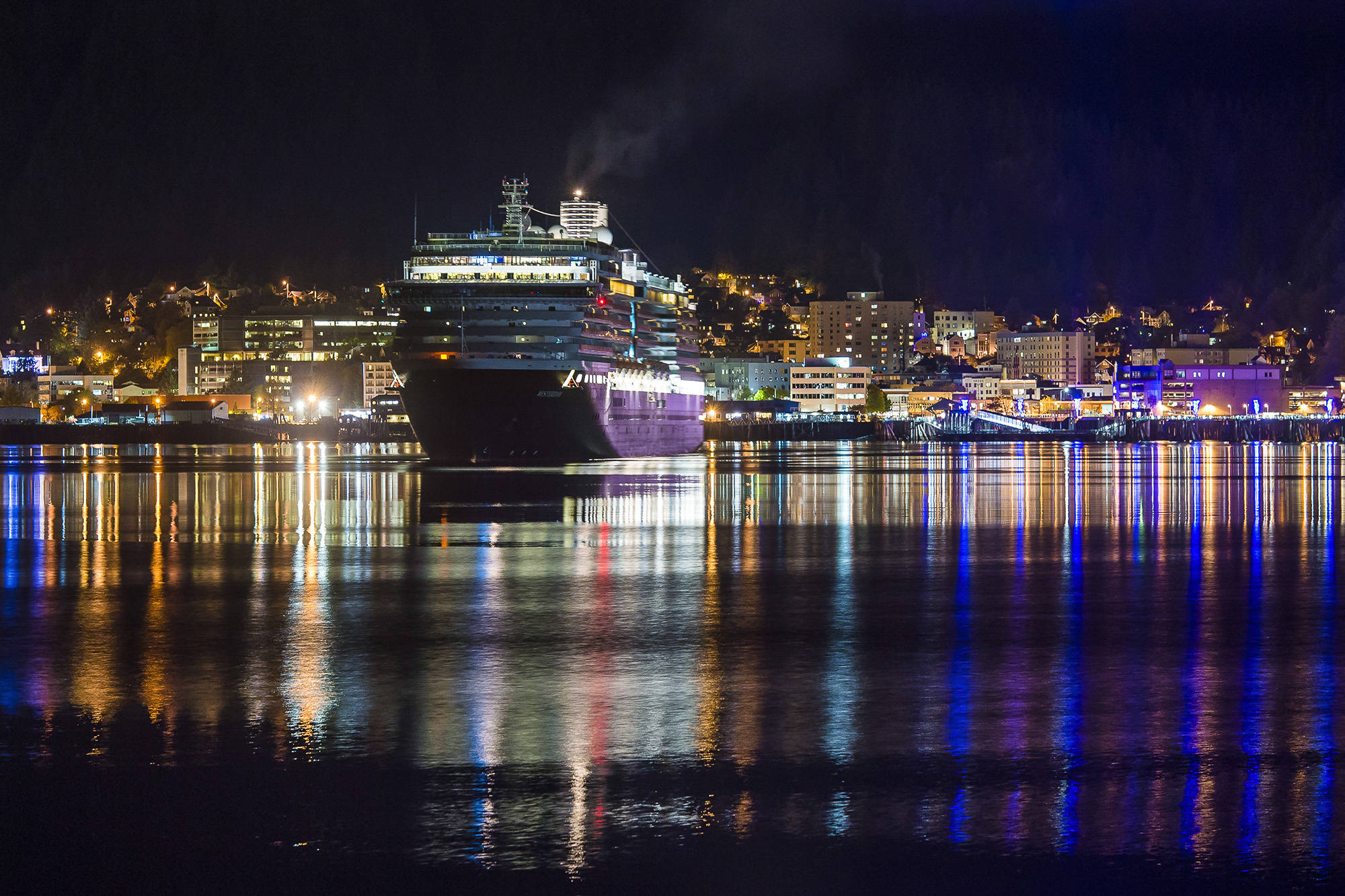At last, it’s over.
Nearly three years after the Cruise Lines International Association (CLIA) of Alaska sued the City and Borough of Juneau, the two sides reached an agreement this week on how to move forward. Essentially, as City Manager Rorie Watt explained in his office Thursday, very little will change for the city and how it uses fees from cruise passengers.
The city will continue to provide services to cruise ship passengers such as crossing guards, fire and emergency medical services, restrooms and more. The area around the cruise ship docks will look virtually the same. The city will also be able to continue developing the downtown waterfront, which was a key issue in the beginning of the litigation.
The purpose of the lawsuit was to determine how cities can spend the money they collect from marine passenger fees and port development fees, also known as head taxes, which are fees collected from each cruise ship passenger. CLIA alleged that CBJ had misused these funds, and asked that the exact way to use these passenger fees be determined in court.
[City breaks silence on cruise ship lawsuit]
In December, U.S. District Court Judge H. Russel Holland ruled that it’s constitutional for the city to collect head tax fees. He also ruled that municipalities can only spend the revenue from those fees to serve the ships. He stated in his decision that if an expenditure doesn’t “provide a service to a vessel,” that expenditure is unconstitutional. The question that arose from that was what exactly “service to a vessel” means. While CLIA argued it meant the physical cruise ship, CBJ argued it could also apply to passengers.
Speaking in his office Thursday afternoon, City Manager Rorie Watt said Holland’s decision left the city and the cruise lines with a little work to do.
“Judge Holland gave us a road map and I think we decided that we could figure out how to apply it together rather than forcing the judge to decide or create new law,” Watt said.
Another part of the agreement, which was announced in a press release Thursday, is that the legal fees of both the CBJ and CLIA will be partially reimbursed with marine passenger fee funds. Watt said CLIA’s legal fees are about $1.5 million and the city’s remaining fees are about $450,000.
As part of the agreement, the city will also be allowed to use passenger fee money on its upcoming improvements to Don D. Statter Harbor at Auke Bay. The city can fund up to 75 percent of the $12.4 million project ($9.3 million) with passenger fees, according to the agreement. The remainder of the project will come from local sources.
Both parties also agreed to meet annually to discuss any new proposed Juneau projects and services that might be funded through passenger fees. The two sides also agreed to settle future disagreements outside of court.
Watt said this agreement addresses the main concern that each side had. For the city, the principal goal was maintaining local control over its projects. For CLIA, the main concern was to have some kind of consistency from port to port as their ships travel, Watt said.
CLIA Alaska President John Binkley said in a statement to the Empire that this is a “positive outcome” for both sides.
“The agreement achieves our goal of providing certainty and predictability of how passenger fees will be utilized going forward, while still supporting services to our guests and to the local community,” Binkley wrote in an email. “Working together allows continued positive economic benefits to Juneau in a manner that sustains the quality of life for local residents and provides a great experience in a world class destination.”
[Custody case goes before Supreme Court]
The “catalyst” for the lawsuit, Watt acknowledged, was the fact that the city used passenger fees to fund the construction of a walkway along the water and artificial island all the way near the Douglas Bridge. CLIA asserted that this was too far away from the cruise docks to provide a reasonable benefit to the ships.
“We acknowledge that that project may or may not have survived a legal challenge,” Watt said. “We don’t know, we won’t ever know, because it wasn’t challenged directly.”
The CBJ Assembly still needs to approve an ordinance to have Watt sign the agreement. The ordinance will be introduced at a special Assembly meeting at 5 p.m. Friday. A week later, at 5 p.m. March 22, the Assembly will have another meeting where people from the public can come share their thoughts.
If the Assembly members vote to approve the ordinance — which is the likely outcome — Watt said he’ll sign the agreement as soon as he can.
• Contact reporter Alex McCarthy at amccarthy@juneauempire.com. Follow him on Twitter at @akmccarthy.

